15 weeks pregnant - symptoms, fetal development and what to consider
Sorry to tell you, but the backache's about to kick in...
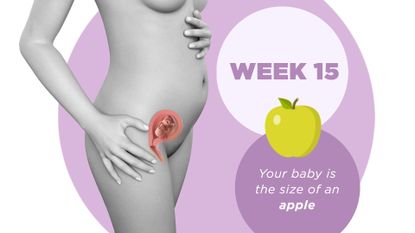

You're now 15 weeks pregnant but what should you expect? From scans and check ups to morning sickness and backache - there's a whole lot of things to think about when you get to 15 weeks of pregnancy. Here's an overview of what you need to know...
Symptoms at 15 weeks pregnant
You knew about the morning sickness, the backache in pregnancy, even the pregnancy heartburn, but a blocked nose? Feeling stuffed up may be one of the lesser known side-effects of pregnancy, but nearly a third of pregnant women experience a blocked up nose during pregnancy. Known as pregnancy rhinitis, it is caused by a rise in oestrogen and an increased blood flow.
Nosebleeds are another nuisance which are caused as your increased blood flow put pressure on the vessels in your nose, causing them to break. To stem the flow of a nose bleed stay sitting and firmly pinch the soft part of your nose just above your nostrils for about 10 minutes. Both symptoms often start early in the second trimester and can continue throughout the rest of your pregnancy. Try setting up a humidifier in the bedroom as this can help with a blocked up-nose.
Fetal development 15 weeks pregnant
Your baby is around 10.1 cm long and weighs around 70 grams (the weight of a large egg). Your baby's body is now growing at a faster rate and they're starting to look more in proportion. Hair and eyebrows are also beginning to grow and your baby may even be able to suck its thumb.
A baby's sweet tooth starts in the womb. The things you eat and drink flavour your amniotic fluid and stimulate your baby's tiny taste buds. Studies have shown that a foetus's swallowing increases when surrounded by sweet tastes and decreases with bitter and sour tastes. Unborn babies have even been seen to express their displeasure with a frown.
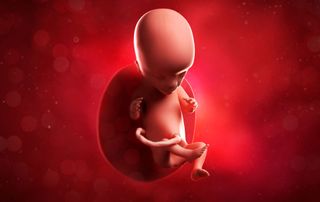
The changes you should make at 15 weeks pregnant:
You may have the Quadruple Test this week. This is a blood test used to screen for Down's Syndrome and Spina Bifida. If you have chosen to be screened for abnormalities and a diagnostic test has been recommended then this is the earliest point at which an amniocentesis could be carried out. An Amniocentesis is not a routine antenatal test. You will only be offered an amniocentesis if you are identified as having a high risk of carrying a baby with fetal abnormalities such as Downs Syndrome.
Unlike antenatal screening tests, an amniocentesis is an invasive test. A fine needle is passed through your abdomen and guided via ultrasound into your uterus in order to collect a small sample of amniotic fluid. The fluid sample contains cells from the baby which can be grown in culture in a laboratory and used to look at the baby's chromosomes.
GoodtoKnow Newsletter
Parenting advice, hot topics, best buys and family finance tips delivered straight to your inbox.
There are two main tests that can be done to look at the baby's chromosomes. The first is called a rapid test. It can look for the chromosome disorders Down's syndrome, Edward's syndrome and Patau's syndrome. Results from this usually take three days. The second test is called a full karyotype which looks at all the baby's chromosomes. This process can take up to three weeks.
There are some risks though. Approximately one out of every 150 women who has an amniocentesis will have a miscarriage. If you're anxious about giving birth or would just like to learn relaxation and breathing techniques to reduce fear and increase confidence in labour then you may want to consider hypnobirthing, a technique widely reported to have been used by the Duchess of Cambridge during the birth of Prince George.
Further advice and information:
- Visit the NHS for more pregnancy week by week advice
- Download a pregnancy tracker app
- View all our pregnancy week by week guides

Anna Bailey has been the editor of Goodto since 2018. Before joining the team she was Features Editor at MSN UK, where she oversaw Family Health and Days Out. Previously, she was Digital Lifestyle Editor for the broadcaster UKTV, and Lifestyle Editor for ITV.com. Anna studied Multi-Media Journalism at Bournemouth University and went on to gain her NCTJ and NCE journalism qualifications. Anna is responsible for driving the direction and editorial strategy of Goodto. A mum and experienced baby product tester, she is passionate about providing safe, trustworthy, and relatable advice for families of all kinds.
-
 The 3 stages of play every parent needs to know to save their sanity (and you're probably nailing #2)
The 3 stages of play every parent needs to know to save their sanity (and you're probably nailing #2)By Dr Amanda Gummer Published
-
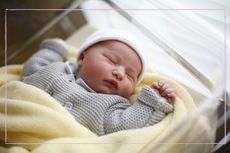 Top 20 rare baby names for 2024 revealed, with some celestial and regal entries
Top 20 rare baby names for 2024 revealed, with some celestial and regal entriesParents looking for rare baby names need look no further - these 20 monikers fit the bill for being unique while remaining suitably understated.
By Lucy Wigley Published
-
 Pregnancy week by week guide
Pregnancy week by week guideEverything you need to know when you're expecting
By Stephanie Lowe Published
-
 Week by week pregnancy guide: 32 weeks pregnant
Week by week pregnancy guide: 32 weeks pregnantYour baby is starting to grow very fast...
By Stephanie Lowe Published
-
 Week by week pregnancy guide: 33 weeks pregnant
Week by week pregnancy guide: 33 weeks pregnantEverything you need to know about being 33 weeks pregnant
By Stephanie Lowe Published
-
 Week by week pregnancy guide: 30 weeks pregnant
Week by week pregnancy guide: 30 weeks pregnantHere's everything you need to know...
By Rosie Conroy Published
-
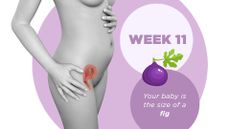 11 weeks pregnant - symptoms, fetal development and what to consider
11 weeks pregnant - symptoms, fetal development and what to considerWelcome to your second trimester...
By Anna Bailey Published
-
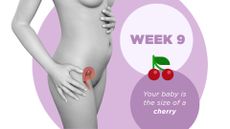 9 weeks pregnant - symptoms, fetal development and what to consider
9 weeks pregnant - symptoms, fetal development and what to considerGreasy hair? Acne? Sickness? Sore boobs? Fatigue? Welcome to 9 weeks of pregnancy
By Anna Bailey Published
-
 Pregnancy calendar: Your pregnancy timeline
Pregnancy calendar: Your pregnancy timelineJust found out you're pregnant? Don't miss out on any important milestones with our guide...
By GoodtoKnow Published
-
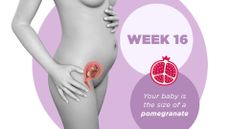 16 weeks pregnant - symptoms, fetal development and what to consider
16 weeks pregnant - symptoms, fetal development and what to considerIncluding your baby's development...
By Anna Bailey Published
